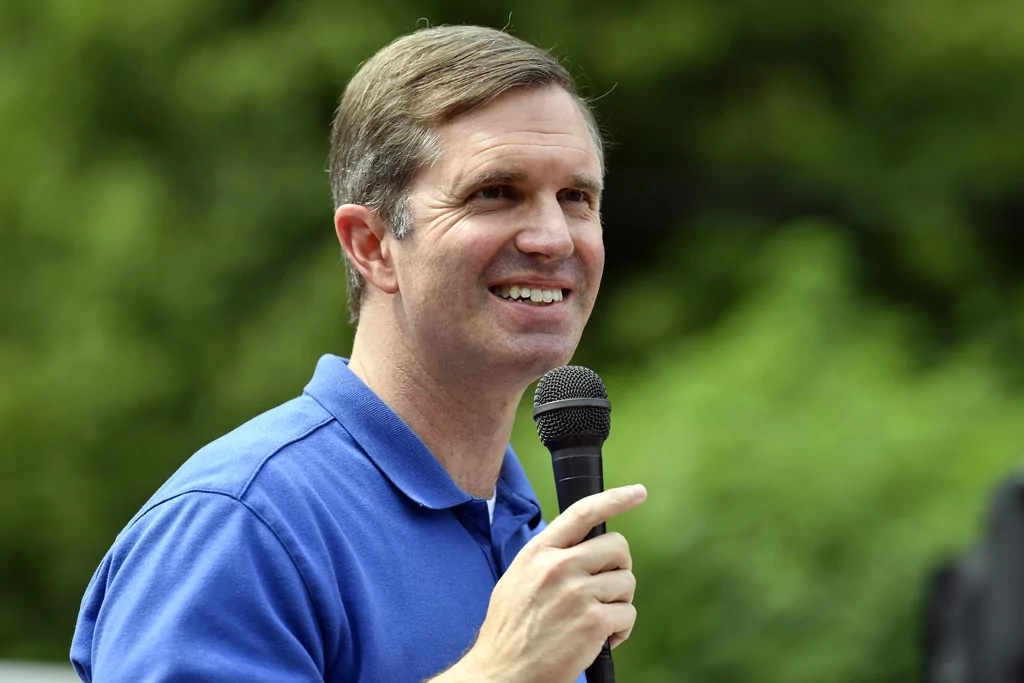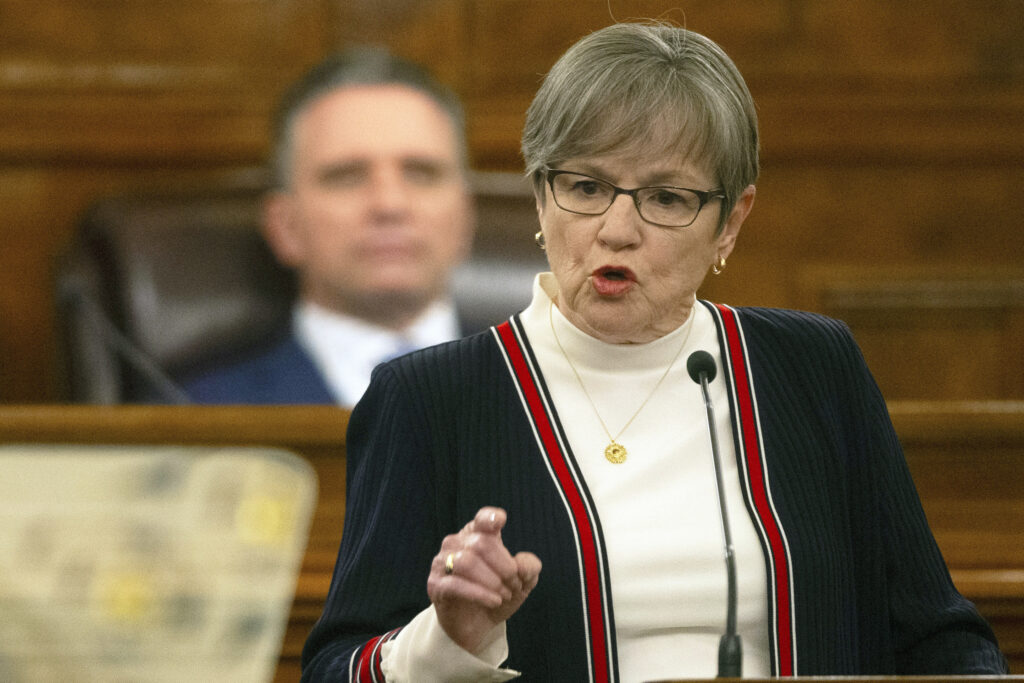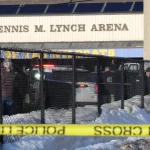States are gearing up for the 2026 midterm elections with updates to election infrastructure and policies.
In recent weeks, governors across the country have signed a slew of bills overhauling election systems and revising voting policies ahead of next year’s elections, posing challenges for both Republicans and Democrats. Governors have also vetoed some bills, drawing ire from state legislators.
New Jersey
In early March, Gov. Phil Murphy (D-NJ) signed NJ S4142 into law, giving a critical victory to residents who argued the legislation would break party bosses’ power over elections.
With Murphy’s signature, New Jersey will mandate office-block ballots in primary elections, requiring county clerks to print ballots that group candidates by the office they seek.
Under the new law, the state’s controversial county line system — grid ballots that support organizational lines — will be eliminated. Critics of the previous policy argued it empowered party machines and “allowed candidates to be tucked away alone in the far reaches of a ballot, commonly called ‘ballot Siberia,’” according to the New Jersey Monitor.
“Party-backed candidates were grouped together while candidates without endorsements were displayed awkwardly or on obscure parts of the ballot,” a Politico analysis found.
The change came after former Rep. Andy Kim (D-NJ) successfully mounted a lawsuit against New Jersey’s ballot structure during his Senate race last year, arguing that the system was unconstitutional.
“Today’s decision is a victory for a fairer, more democratic politics in New Jersey,” Kim said after a judge barred the county line system from being used in the June Democratic primary the New Jersey lawmaker was running in. “It’s a victory built from the incredible grassroots work of activists across our state who saw an undemocratic system marginalizing the voices of voters and worked tirelessly to fix it.”
Murphy also signed a bill extending in-person early voting for New Jersey primary elections. Under the new law, voters have six days of in-person early voting instead of only three days of early voting during primaries in nonpresidential years and five days in presidential years.

Utah
Utah was one of eight states that mailed ballots to all active, registered voters — until this year. With the passage of House Bill 300, the state became the first to repeal its universal mail ballot system.
Gov. Spencer Cox (R-UT) signed a bill on March 27 that phases out Utah’s universal-voting-by-mail system, in which counties automatically send ballots to every voter’s mailbox. The bill also expands voter identification requirements.
Under the new law, Utahns can still opt in to participate in elections through mail. The law will also transition the state to begin requiring voters to use the last four digits of their state ID number, rather than the voter’s signature, to verify a mail-in ballot. The new voter ID requirement takes effect next year. However, election clerks have until 2029 to rely solely on the state ID number instead of signatures.
The law also expands ways for voters to opt in to vote by mail, including when renewing their driver’s license, voting in person, or through an online portal.
Lt. Gov. Deidre Henderson, the state’s top election official, praised the bill, saying it preserves voters’ ability to vote by mail.
“Utahns have overwhelmingly shown that they trust and prefer to vote by mail. This bill preserves that option. I appreciate the collaboration between election officials and the bill sponsors, as well as the public input that helped shape this legislation,” she told Utah News Dispatch.
Some legislators, including Republicans, expressed concern that the law would discourage citizens from participating in elections.
“I’m concerned, first of all, that it makes it harder to vote,” Republican state Sen. Todd Weiler said. “People will perceive this as taking away something that they’ve enjoyed now for over a decade.”
Cox argued the law is helpful for restoring trust in the election process.
“I’m very supportive of it. I think it’s a brilliant bill,” the governor said at a press conference on the final night of this year’s legislative session. “Lots of people wrongly believe that we have mass fraud in our elections, and it’s just not true, but we need to restore trust to them as well.”
Kentucky
Kentucky’s Democratic governor drew criticism from state Republicans over an elections bill he vetoed that received broad bipartisan support from legislators.
Gov. Andy Beshear (D-KY) “just murdered bipartisan election reform,” Republican Secretary of State Michael Adams said in a post to X.
However, on March 27, the GOP used its supermajority in the general assembly to overrule Beshear’s veto, making HB 684 law in the state.
The law expands who can vote in person before early voting starts and allows local election boards to give schools advance notice if they are needed as local voting centers.
“This is not controversial stuff; it’s all just commonsense stuff, that’s why the Democrats voted for this, too,” Adams told a local news outlet.
In his veto message on March 25, Beshear argued the legislation would make it harder for people to vote because of a provision that takes away a 2020 rule allowing residents to use a credit or debit card as a valid form of voter ID on Election Day.
“House Bill 684 will make voting more difficult by no longer allowing a voter to cast a ballot by providing his or her credit card or debit card if the voter does not have proof of identification,” he said. “Voters have been able to show their credit or debit card in order to vote since 2020 as part of bipartisan legislation aimed at making voting easier while verifiable. House Bill 684 reverses course and makes it harder to vote.”

Kansas
On March 25, Kansas Republicans used their supermajority in the state legislature to override their Democratic governor’s veto of legislation that narrowed the time period in which ballots are accepted.
Under prior policies, Kansas’s election system allowed mail-in ballots to arrive up to three days after Election Day and still be counted as long as they were postmarked by Election Day. The new law moves the deadline for counting mail-in ballots to 7 p.m. on election night.
Gov. Laura Kelly (D-KS) said in her veto message that Senate Bill 4 would deter rural constituents from participating in elections.
“Not only will removing the three-day grace period for mail ballots disenfranchise thousands of Kansas voters, but it also shows a lack of understanding of our elections in Kansas,” she wrote. “Implementing this will create confusion among county election officials, who will have to update policies and procedures on handling of mail ballots in a higher turnout election year.”
House Republican leadership said the governor’s “misguided veto was a slight to voter confidence.”
“Kansas voters — whether in rural communities or urban centers — deserve an election system that is transparent, fair, and trusted,” the state GOP’s statement said. “This override reflects House Republicans’ commitment to ensuring all Kansans’ votes will be counted.”

South Dakota
Gov. Larry Rhoden (R-SD) signed 20 election bills into law on March 25, including several designed to keep illegal immigrants from voting.
“South Dakota continues to be an example of free and fair elections. Our election system has integrity, and these bills improve our already strong system,” he said. “America is founded on the principle of freedom, and I am proud that we live in a nation and a state where we can choose our leaders.”
HB 1066 requires voters to reside in South Dakota for 30 consecutive days before registering to vote. Another bill, HB 1256, mandates petition signers list the address and county where they are registered to vote rather than just their address. Under HB 1208, those who register through a commercial mail forwarding service will only be eligible for a federal-only absentee ballot covering presidential and congressional races. Supporters say this prevents nonresidents from influencing local elections.
Rhoden also signed a bill requiring labels on political deepfakes within 90 days of an election. Deepfakes are defined as “any image, audio recording, or video recording created or manipulated with the use of artificial intelligence or other digital technology that is so realistic a reasonable person would believe it depicts the speech or conduct of an actual individual who did not, in fact, engage in the speech or conduct.”
Violators face fines, misdemeanor charges, and up to a year in prison. The law exempts broadcasters, newspapers, websites, and radio stations from liability and comes as deepfakes emerged as a highly debated problem during the 2024 election cycle.
One of the election-geared bills Rhoden vetoed would have required petition signatures for constitutional amendments to be gathered from each of the state’s 35 Senate districts.
“This bill has a worthy goal: placing safeguards on the process to add constitutional amendments to the ballot in South Dakota,” Rhoden wrote in a veto message. “However, I am concerned that this bill will not withstand scrutiny in the courts. This bill attempts to change the South Dakota Constitution in statute, and I believe that approach to be misguided.”
Virginia
Gov. Glenn Youngkin (R-VA) vetoed a handful of election-oriented bills, including HB 2276. The legislation would have required that specific identification information be included in records submitted to the Department of Elections to maintain the state’s voter registration list and raised the bar for how easily election personnel could target suspicious voters listed on registration records for removal.
Youngkin argued that raising the match threshold to 80 points to remove someone from the voter registration list could reduce the number of voter record matches sent to registrars, “limiting necessary cancellations and reducing voter roll accuracy.”
The Virginia governor also vetoed HB 2002, which similarly tightened restrictions on local election officials’ ability to cancel a voter’s registration. Only information provided by the Virginia Department of Elections or another state agency approved by the State Board of Elections could result in a voter being purged from the rolls, per the legislation.
DEMOCRATIC STATES SUE TRUMP OVER MOVE TO RESHAPE ELECTIONS
In his veto message, Youngkin said the bill “limits registrars’ flexibility and increases the risk of outdated voter rolls” while unnecessarily restricting voter list maintenance and undermining the secure, fair, and accurate conduct of elections.”
“General registrars rely on a range of verified sources, including the Virginia Department of Elections and the Virginia Department of Health, while also using obituaries and family reports to confirm voter deaths,” he wrote. “This bill eliminates those effective tools, making it harder to maintain accurate voter rolls and creating unnecessary bureaucratic barriers.”
























